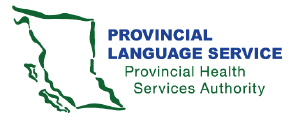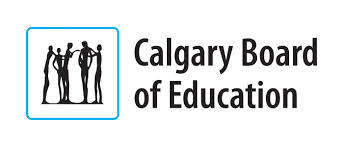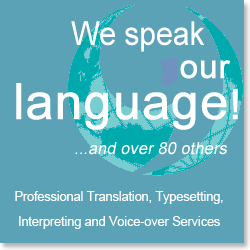What is professionalism?
Professionalism means any activities and conducts must combine with qualities, skills and consciousness.
KEEN Languages Interpreter has been built through an effort of Founder and Director, Mr. Sophan Seng, who has gained both strong academic background and several years experienced within Interpretation and Translation field.
We are courteous, honest, accurate, impartial, detailed and unobtrusive during each assignment. Information shared in translating or interpreting assignments is strictly confidential. All interpreters must bear professional conduct, code and ethics, confidentiality, life-long learning, capability, performance sensitivity, and neutrality.
Services are driven by client-based approach. We’re harnessing the power of breaking through language barrier in an approachable, effective way. KEEN Languages Interpreter provides a stepping stone for our clients to reach the future they envision.
Important Qualities
Business skills. Self-employed and freelance interpreters and translators need general business skills to manage their finances and careers successfully. They must set prices for their work, bill customers, keep records, and market their services to build their client base.
Concentration. Interpreters and translators must have the ability to concentrate while others are speaking or moving around them.
Cultural sensitivity. Interpreters and translators must be sensitive to cultural differences and expectations among the people whom they are helping to communicate. Successful interpreting and translating is not only a matter of knowing the words in different languages but also of understanding people’s cultures.
Dexterity. Sign language interpreters must be able to make quick and coordinated hand, finger, and arm movements when interpreting.
Interpersonal skills. Interpreters and translators, particularly those who are self-employed, must be able to get along with those who hire or use their services in order to retain clients and attract new business.
Listening skills. Interpreters and translators must listen carefully when interpreting for audiences to ensure that they hear and interpret correctly.
Speaking skills. Interpreters and translators must speak clearly in the languages they are conveying.
Writing skills. Interpreters and translators must be able to write clearly and effectively in the languages they translate.
Source: US Bureau of Labor Statistics
Interpreter
Interpreter literally means a person who carries or transfers a message from a sender to a receiver. Cambridge Advanced Learner’s Dictionary defines it as “someone whose job is to change what someone else is saying into another language”.
Introduction (Example):
Service Provider:
(to LEP) “Hello Mr.Khay. I am Mrs.Jamson”
Interpreter:
(in Khmer) “Hello Mr. Khay. I am Mrs.Jamson”
(in English) “Hello Mrs.Jamson. I am Sopheak; I have been sent by KEEN Languages Interpreter Services to interpret for your appointment with Mr.Khay today. First of all, please speak to the client directly; I will interpret everything you say exactly as you say it. I’ll do the same for the client. Also, please pause often when you speak so that I can interpret accurately. If I feel that I am getting behind, I will raise my hand to ask you to stop. If I feel that clarification is needed, I will ask for additional information. If it appears that there is a language -or culture-based misunderstanding, I will interrupt the session in order to resolve it. It may be necessary for me to take notes. These will be destroyed at the end of the session. Please, understand that everything you say is confidential. My Code of Ethics doesn’t allow me to repeat anything that is said in this conference. I would now like to take a moment to give Mr.Khay the same information”.
(in English) “If there is no question, I will begin to interpret”.
Points Rated
Users’ Expectation Survey by Mozer et al: completeness of rendition (87%), correct terminology (87%), clarity of expression (73%)
For survey conducted by A.M.Mesa, the purchasers of community interpreter rated the quality and behavior of interpreter, as follow: fully bilingual (96%), ensures confidentiality (95%), point out lack of understanding (92%), not judgmental (91%),interpretation is faithful to speaker’s intended meaning (90%), provide cultural explanations/interpretation during session (62%).
Languages and Communication Skills
– Has native-like mastery of both languages with excellent command of the grammar, syntax, and vocabulary of both languages
– Has clear, distinct pronunciation
– Understands the dialectal varieties of English and the foreign language, and can determine each speaker’s language skills and dialects
– Understand non-verbal communication, and different communication styles
– Has excellent listening and recall skills
Code of Ethics & Professionalism
Before the interpretation
– Dress appropriately
– Arrive early
– Report to correct person
– Have identification
– Turn off your phone
– Avoid contact with the LEP
At start of the interpretation
– Position yourself to best facilitate communication among all parties, unless otherwise directed
– Ensure good visibility of all parties
– Remain at the appointed location until ended or dismissed
– Avoid conducting personal or other business
After the interpretation session
– Maintain confidentiality
– Commit to lifelong learning
– Take available courses or examinations to obtain accreditation and/or certification
– Maintain membership in appropriate professional associations of interpreters and complies with the code of ethics of such associations
Who is a translator?
Different from interpreter (who is helping to transfer the intended messages from the speakers), translator will help carry the meaning of phrases, words or complete meaning of the written documents or texts.
Our Premium Services
Our team of Professional Translators enable premium services which means they are professional and reliable. Our services shall guarantee satisfaction. Our translators are certified in specific directions for example, Thai into English or Cambodian into English only (not both directions). From technical documents to contracts, from software localization to business plans and product guides, this service will help people communicate in the most effective manner available.
For your information, we have listed a few of the fields of expertise that our translators have. Each area of business has an entire way of communicating and requires a deep understanding of the terminology and context; we do everything we can to help you get the best possible translation:
– Business & Finance
– Academics
– Legal
– Marketing and Public Relations
– Software Localization
– Technical Writing
– Immigration
Our Pricing
Certified translation
Most legal documents need a certified translating such as documents for immigration purposes, including birth/marriage certificates, diplomas, police certificates and passport stamps. Truthfully, most translations are completed within 1-3 business days.
Pricing per document
| One page | $40 |
| Two pages | $70 |
| Three pages | $110 |
| Four pages | $140 |
| Five+ (per page) | $32 |
Business translation
Practically, business translations don’t need certified translating.
We charge such orders on a per word basis. The price depends on the Source/Target languages, amount of text, time frame, file format, and so forth. The average is $0.10-0.15 per word. There is a minimum of $40 per translation. We transcribe audio recordings for $1 per minute.
Delivery
| Regular mail (free) | 3…6 days |
| Express mail ($20) | 1…2 days |
We don’t offer walk-in services, the best way to order is to go online or by mailing us the documents you need to be translated. This approach significantly helps us to keep these low rates. If you are in a rush, consider using express mail delivery ($20). Thank you for allowing us to serve you.
*GST is not included. We accept: check, certified check, Western Union, Money Gram, credit/debit cards, PayPal. A minimum of $40 is charged per language. A surcharge applies to some exotic languages or special requests.









